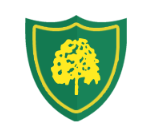Year 5PM
Welcome to Year 5PM Class Page, the place for you to find out all the amazing things that have and will be happening in your class this year.
So click on each of the headings to find out more information about the given topics.
Your Class Teachers
This year you are lucky enough to have 2 different teachers within your class.
Mr Martin - Class Teacher
Miss Stairmand - Teaching Assistant
PE
PE will take place every Tuesday and Friday afternoon, when you will take part in Tag Rugby and Danish Longball.
For PE sessions please bring the following:
- Black shorts, leggings or jogging bottoms
- White t-shirt or polo shirt
- Black pumps or trainers
It is usually best to leave your child's PE kit in school for the half-term so that it is always available to use.
Reading
It is important that your child brings their reading book into school each day as the days on which they will be able to read with an adult may change from time to time. It is also crucial that you listen to your child read each evening and ensure that you sign their reading record highlighting what they have read and how they performed.
Within this class reading records will be checked and books changed on a Friday.
Homework
Homework will be set on a Tuesday through our online learning platform, SeeSaw. A link for which is placed below:
All homework should be completed by the following Monday and will be checked by your teacher on this day. Please make sure that if you are having difficulties with the homework, that you contact your class teacher with plenty of time so that they can assist your child in its completion. In addition, the school also run a homework club which can really help support those children that struggle completing their tasks independently.
Curriculum
Year 5 - Summer 2
As mathematicians we will:
- add decimals with different numbers of decimal places
- subtract decimals with different numbers of decimal places
- use efficient strategies for adding and subtracting decimals
- multiply by 10, 100 and 1,000
- divide by 10, 100 and 1,000
- multiply and divide decimals – missing values
- understand negative number
- count through zero in 1s
- compare and order negative numbers
- find the difference between numbers
As scientists we will:
- determine the hardness of materials and link this to their uses
- make scientific predictions
- investigate the transparency of different materials and link this to their uses
- plan and draw a table of results
- write a detailed, organised method that is easy to follow
- determine the conductivity of different materials and link this to their uses
- to show reversible changes
- to prove irreversible changes
- to explain irreversible changes
As writers we will:
- use relative clauses beginning with who, which, where, when, whose, that or an omitted relative pronoun
- use adverbs to indicate degrees of possibility
- use a wider range of devices to build cohesion across paragraphs
- link ideas using tense choices
- use precise word choices
- select language to appeal to the reader
- use a formal tone
- provide well-developed factual information for the reader
- manipulate style for specific purpose and audience
- write an introduction
As children who value our ‘Relationships, in PSHE we will:
- what is racism?
- how does my life compare with people in the developing world?
- how is information protected?
- how can I manage a request to share an image of myself online?
- how can I manage my screen time?
As readers we will:
Practise our VIPERS skills:
Vocabulary
Inference
Prediction
Explanation
Retrieval
Summarise
This half term we are reading, Brother Eagle, Sister Sky.
As computing experts, we will:
- design an electronic product.
- code and debug a program.
- use CAD software to design a product.
- create a website.
- create a video advert
As musicians we will:
- name three key features of blues music.
- sing in tune, using vocal expression to convey meaning
- explain what a chord is and play the chord of C sixteen times
- play the 12-bar blues correctly
- play the notes of the blues scale in the correct order, ascending and descending
- play a selection of blues scale notes out of order in their own improvisation
As learners of RE we will be exploring the Big Question:
- What matters most to Humanists and Christians?
We will answer the questions:
- why do people do good and bad things?
- what is a humanist? What codes for living do humanists have?
- where do Christian people gather their code of living from?
- what values matter most to Christians?
- how do we create peace?
- what does honesty look like in every-day life?
- how do Christians and Humanists know how to act? What do they base their decisions on?
As Spanish experts, we will:
- interpret locational language in a description of South America
- identify and extract key information in simple writing
- construct comparative sentences about South America’s environment
- discuss ways to help protect South America’s environment
- write a set of instructions for creating a healthy world
- script an advert campaigning for action on South America’s environmental problems
As historians we will answer the following enquiry questions:
- what is the New World?
- why can we now eat chocolate and vanilla ice cream?
- what impact did the Columbian Exchange have?
- was Christopher Columbus a hero?
As geographers we will:
- compare America to the UK
- research North America
- explore Manchester City Centre
- compare perspectives of NYC
- compare Manchester and NYC
